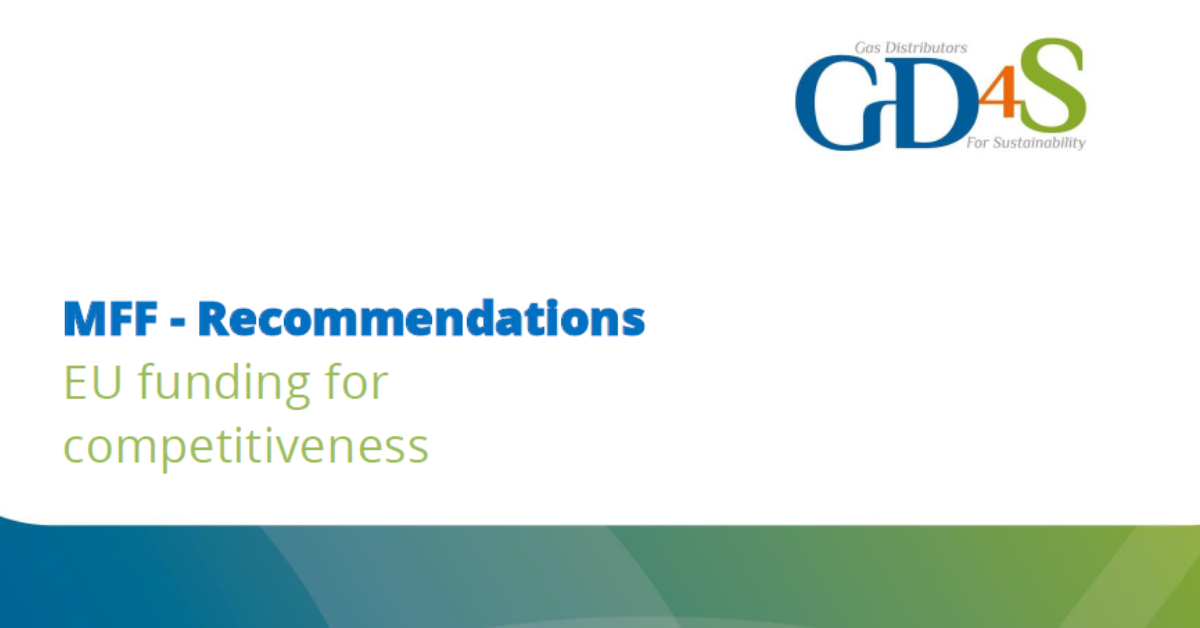As the European Commission prepares its proposal for the next Multiannual Financial Framework (MFF), a strategic opportunity emerges to align the EU’s long-term budget with its most pressing priorities: climate neutrality, economic resilience, and energy security.
Among the many voices contributing to this vision, the Gas Distributors for Sustainability (GD4S) are calling for a future-oriented MFF that puts renewable and low-carbon molecules, particularly hydrogen and biomethane, at the heart of the EU’s funding architecture.
The Role of Renewable Gases in a Competitive, Climate-Neutral Europe
Hydrogen and biomethane are essential for decarbonising sectors where direct electrification is not feasible, such as heavy industry, high-temperature processes, and long-haul transport. Beyond emissions reduction, these gases offer critical benefits:
- Flexibility and energy storage, balancing intermittent renewable generation.
- Reduced dependency on fossil fuel imports, enhancing geopolitical resilience.
- Clean alternatives for industry, safeguarding Europe’s manufacturing competitiveness.
Empowering Distribution System Operators (DSOs)
As key infrastructure players, Distribution System Operators are uniquely positioned to support the energy transition. Their networks serve as the link between local renewable gas production and end users, including households, SMEs, and industry.
The MFF must:
- Fund modernisation and digitalisation of gas distribution grids.
- Support repurposing of infrastructure for hydrogen.
- Promote the integration of decentralised renewable sources, especially in rural and semi-urban regions.
Funding Innovation and Unlocking Private Capital
Future EU funding must:
- Enable investment across the value chain—from R&D to large-scale deployment.
- De-risk private investments through blending instruments and EU guarantees.
- Ensure funding mechanisms are accessible, with simplified procedures and broader eligibility.
A stronger European Competitiveness Fund should be designed to support strategic technologies like renewable gases, which are key to a sustainable industrial future.
Making the Transition Fair and Inclusive
The MFF should also reflect a commitment to social inclusion and regional equity. GD4S recommends:
- Supporting education, training, and civic engagement around clean energy technologies.
- Funding cross-border programmes that build capacity for young professionals and local communities.
- Empowering local authorities and civil society to engage in the transition through programmes that promote climate justice, access to energy, and democratic participation.
Conclusion: Investing in Molecules and Momentum
Hydrogen and biomethane are not only energy carriers—they are strategic assets for a competitive, sustainable, and united Europe. The next MFF must reflect their potential with targeted, accessible, and strategic funding.
By aligning investment with innovation and inclusiveness, the EU can turn its long-term budget into a cornerstone of the green and industrial transition.
